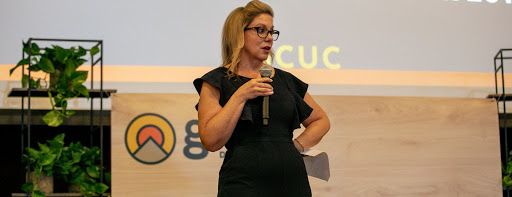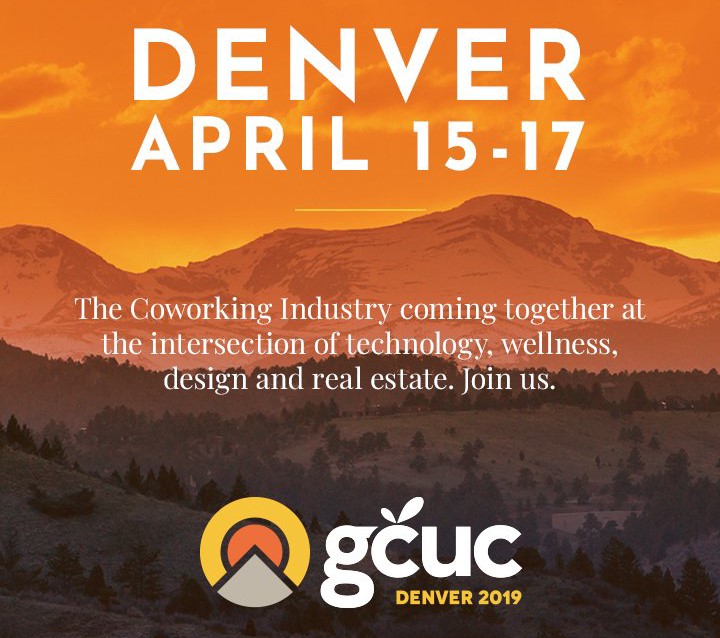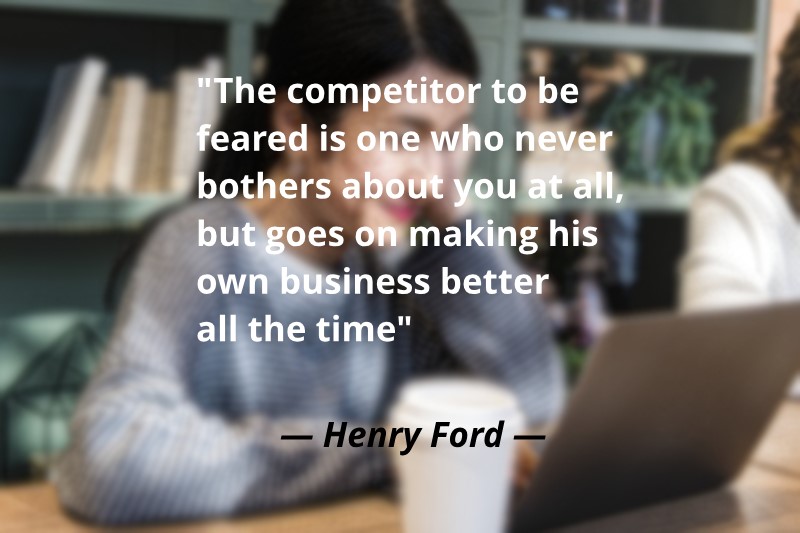Liz Elam: I would challenge every owner to take it up a level
I’m quite sure that most of you in the world of coworking have heard of GCUC (Global Coworking Unconference Conference). If you haven’t, you can find out more about it further down in our interview with Liz Elam - the founder of GCUC. That’s right, we were lucky enough to take up some of this busy lady’s time, because we share something in common - we want to help your space and community thrive.
While working for Dell inc, where she was a Global Account Manager, Liz realised she needed a welcoming space to work and an affordable, professional space for meetings. Working from home has its perks, but being an extrovert meant she started to crave human interaction. Coworking spaces were exactly what she was looking for, but she had her own vision. This led to her opening Link Coworking in 2010 (Austin, TX), which has now become a multi-property enterprise and a globally recognised brand in the coworking industry. Following this, Liz has carried out outstanding coworking research, become the first president of the League of Extraordinary Coworking Spaces and founded GCUC.
Yeah I know, that’s pretty impressive! So I think we could all benefit from getting some advice from this Boss Lady who has played a major role in the rise of the coworking industry.

In our interview with Liz, we explore new industry trends and how operators/managers can adapt their space and services to the evolving industry.
Q&A with Liz Elam
1. You founded the largest coworking conference in the world - GCUC (pronounced juicy). Please tell us a bit about the conference, and why you decided to start it?
Before I opened my space I went to a couple of meetups around South by Southwest where I met other coworking operators here in Austin, and from around the world. It was super helpful for me to bounce some of my questions off people.
Then in 2011 a company called (now-defunct) Loosecubes put together a half day unconference here in Austin. I didn't even know what an unconference was but it was about coworking, and so I helped them find some sponsors and was super excited about it. I went to this unconference and met people from all over the world. I met Carsten from Deskmag, I met the folks from Garage and I was like wow this is so amazing.
But when I was watching some of the panels and looking around the room, I noticed that there weren't really any women taking the lead. And I was like oh, I could be that girl! Then I was thinking as coworking grows, a conference around coworking is gonna be really cool and it will help me be a leader, and I should do that.
Then that summer the organizers of the conference called me up and said you know we're really not that into it and you’re super dorked out about it. So why don't you take over? And I was like hell yeah, I'll take it over. So I immediately rebranded it the Global Coworking Unconference Conference, because I knew this thing would someday go global and I'd have conferences all over the world... and now I do!

2. Last year wellness was a key theme throughout the conference. How can operators incorporate wellness effectively into their space?
There are so many simple ways that you can incorporate wellness into your space. One of the easiest things you can do is make an effort to talk to every single person you pass and acknowledge every human being. We get so focused on what we've got to do next, or that meeting, or that phone call. I think we tend to focus too much on physical health and we leave out emotional and environmental health, which I think are actually more important. So a lot of it is just being human, mindful and kind.
Then I think environmentally, the easiest thing you can do is start using non-toxic products in your space and incorporating a bunch of plants. Plants are fantastic at cleaning the air, they make people feel better and they make your space look better. I think it's a really easy, cheap thing to do and there are lots of articles out there about the best office plants. Aloe Vera and the Snake Plant are both fantastic.
In coworking, we already take care of people every day because we're providing a place for people to come and be productive. We've proven that when they're here they're happier, they're better networked. But I would challenge every owner to take it up a level.

3. How is the rapid growth of coworking affecting the industry? Do you see a change in expectations from coworkers?
One of the things I think is really funny, that started happening to me this year, is people come in and are like "can I see your phone booth?", which has never happened before. Eight years ago no one was making a standalone phone booth with power and lighting and now there are 10 people you can pick from. So I think consumers are becoming more savvy.
I think the market's becoming saturated in a lot of places. There's plenty of room for growth, but finding a way to differentiate is important now. There are lots of niche brands coming into the market, which I think is super smart. There's a group out of Denver called REth!nk which is paying attention to coworking and real estate. There's a group in Australia called CLIK Collective, and they're focusing on warehousing and shipping for e-commerce businesses. So smart.
I think it's really going to force coworking space owners to evaluate and make smart choices about where they're going.
I’ve noticed that us pioneers who've been around a while, like Cohere in Colorado, have all done a redesign of our spaces. We've been around for six or eight years and it was time to reinvent ourselves.
4. Community has always been a focal point in the coworking industry. With the increasing competition, do you think managers are focusing enough on building strong communities?
I do, because that's what differentiates coworking from other industries. That's the secret sauce of coworking - building a community.
I was watching a TED talk on addiction, and if you look at groups like Alcoholics Anonymous, the thing that cures these people is connection. So my hypothesis is, the thing that can cure the loneliness epidemic is community. Therefore, I feel that the focus on community has to be greater now than it ever was in the past, because the number one health epidemic facing the world is loneliness. And that's taken from the World Economic Forum.

5. Automation in the workplace can help managers to focus more on community and hospitality. At what point do you think investing in software becomes essential, particularly for small coworking spaces?
I actually went through that with Link Coworking where I worked off spreadsheets and Google Docs for a long time, too long. When I opened my space there were hardly any coworking spaces in the world, so there was no software. So it depends on the size, but for me it was when I got to over 10,000 sq. ft. - that's when I feel you need to have it.
Eight years ago I didn't want to ask people to put their credit card into a system because people were still not very trusting of a lot of software platforms. But the world has evolved so much in the past eight years, and I think there's been a huge shift in our society and our trust of systems.
So I think it’s a no brainer. I was the person who waited far too long to move over to software and then once I did, it saved myself and my bookeeper a ton of money and time. As an owner, I now had time to look at a dashboard and be like, "OK we're good here, we should look here". It's just a tool we need to have, it makes life much easier.
But yeah, it's so hard as a small business owner, as there are so many things we're paying for. I know coworking looks really easy from the outside, but when you're in it, it's a very complex business with so many moving parts. There are so many things that cost money, which makes it a hard thing to justify, but once you've done it you won't look back.
6. Coworking in Asia-Pacific is growing faster than anywhere else in the world. Why do you think this is? Could it eventually become the global leader?
Well, China has been growing insanely and we've been there with GCUC for almost five years, and we're now doing three conferences a year in China. We're also planning on expanding our operations in Asia-Pacific.
You should look at China if you're looking to expand your coworking empire outside of the US, because the velocity at which China is growing coworking is something I don't see anywhere else in the world, except perhaps India.
So yes, I do think that Asia-Pacific will eclipse other markets simply due to the volume of humans over in those areas. However, China has had a little economic bump in the road right now, so they’re going to slow down temporarily. But India seems to be on fire, and I think Southeast Asia will continue to be a place to watch, and we’ll continue to be there.

7. You have recently become a partner at Deco Group, which is a global coworking consultancy for commercial real estate companies and asset owners. How has coworking impacted the commercial real estate industry?
Oh my gosh. We woke 'em up. I think they were the sleeping giant that was happy to sit back, collect rent and screw people over. Then this other industry came about that was paying attention to people, what they needed and what they wanted. People wanted flexibility, they wanted shorter lease terms and they wanted to be treated better. Coworking is this grassroots industry that has shaken the real estate industry to their core, and will continue to.
Do you remember when we were all carrying our luggage around, years ago? Then somebody put wheels on it and overnight we had wheeled luggage. Coworking is the wheels on the luggage.
8. Last but not least, where do you see the coworking industry in ten years? Any advice for operators?
I can't predict the future, but I believe, and I mentioned this in my coworking megatrends article, that the term office will fade away. Other than the large campuses, like Apple, Facebook and Google the rest of us are going to go to a coworking space. You're not going to say "I'm going to my office" because that's antiquated. So I really believe that the future of coworking is the future of work and how people choose to work. It's not where you're told to work, it's where you choose to work.
My advice to operators is, competition is coming fast, it's coming hard, it's coming nimble, and it's coming funded. So if you aren't actively improving and growing your community, and providing innovative wellness-focused programming, you will be left behind.
What are your systems, how are you innovating, and how are you raising the bar? What are you providing that's better than the next person? But at the same time I believe in the words of Henry Ford, that the competitor you should worry about the most is the one who doesn't worry about you at all, but instead focuses on making their own business better. So don't worry about what other people are doing, worry about your business and what your community needs... but you better be excellent at it!
Wise words, from a wise lady! Thank you for your time and sharing your valuable insights, Liz. Acknowledging the people around you, being mindful and buying plants to brighten up your workspace - simple actions which will make a huge difference to your community and their well-being! For more insight and advice on running a coworking space, you can also check out our interview with coworking guru, Tony Bacigalupo.
Related stories
Global Coworking Trends and Opportunities for 2025
Now well into 2025, the coworking industry continues to demonstrate strong momentum. With demand for coworking spaces remaining steady around the globe, it's clear that coworking is not just enduring—it's thriving. Let’s explore the major trends and opportunities shaping the global coworking landscape this year.
Creating Events that Drive Community Engagement in Coworking Spaces
Community is everything in coworking, but a genuine sense of connection between members doesn’t magically happen overnight or by chance. Often, meaningful relationships take intentionality, effort, and time to build, with events being an effective vehicle for bringing people together around shared interests, goals, and experiences, creating opportunities for collaboration, and a thriving coworking culture. This article looks at creating events that drive community engagement in coworking spaces.
Liz Elam: ‘Community is the number one amenity in coworking spaces’
A household name in the global coworking industry, Liz Elam, is the founder of one of the world’s best coworking event series: GCUC. Liz’s coworking roots began in 2010, when she established Link Coworking – a welcoming, affordable, and professional coworking space – in her hometown of Austin, Texas. Link Coworking achieved incredible success, expanding across three locations and becoming the fourth-largest coworking brand in Austin. It was sold in 2019, making Liz the first woman globally to exit a coworking brand.
Key Takeaways from the Coworking Alliance Summit 2025
Gathering online for the Coworking Alliance Summit last week, members of global coworking alliances, coworking spaces, and community leaders came together to navigate global issues, strengthen ties across the coworking industry, and work collectively towards future goals.
5 Ways to Reduce Noise in Open Offices & Coworking Spaces
Some people like working against a background of noise, while for others it’s their worst work nightmare. The truth is, our relationship with noise depends on our own preferences and the nature of our work.
ViDA Compliance Guide: 8 Essential Steps for Coworking Spaces in the EU
Now that 2025 has arrived, the European Union's VAT in the Digital Age (ViDA) initiative is becoming a key topic for coworking spaces operating in the EU. But don’t panic—ViDA will be introduced gradually, with key changes taking effect from 2028. This major VAT reform aims to modernize tax reporting, combat fraud, and streamline compliance through mandatory e-invoicing and real-time digital VAT reporting for certain transactions.
Key takeaways from the Workspace Design Show 2025
London’s Workspace Design Show is undoubtedly one of the best coworking events of 2025. For one, the exhibition (held at Islington’s Business Design Centre) features a host of innovative and creative workspace design solutions tailored to the needs of modern workplaces.
Harnessing AI to Help Coworking Operators Understand Their Communities Better
After more than twelve years in the coworking industry, we’ve seen the movement evolve at an incredible pace, especially in recent years. Spaces have grown larger, making it harder for operators to truly connect with their communities. At the same time, expectations for higher service standards and increasing competition mean that creating tailored experiences and fostering long-term member engagement is more important than ever.
What Is Workplace Management and Why Does It Matter?
There has always been a need for workplace management – the process of organising and optimising physical spaces, resources, and operations to support people’s needs. But, as 28% of UK working adults were reported to work in a hybrid capacity last autumn (by the Office for National Statistics), the question of ‘why workplace management matters’ is more critical than ever. Let’s look at the workplace management benefits for your operations.
10 Smart Goals for your Coworking Space: How to Set & Achieve Business Objectives
Coworking is synonymous with creativity, collaboration and productivity. Businesses and freelancers love coworking spaces because (by surrounding themselves with fellow workers) they’re more likely to achieve their goals. The coworking environment, while social, is set up to facilitate focused, distraction-free working.

